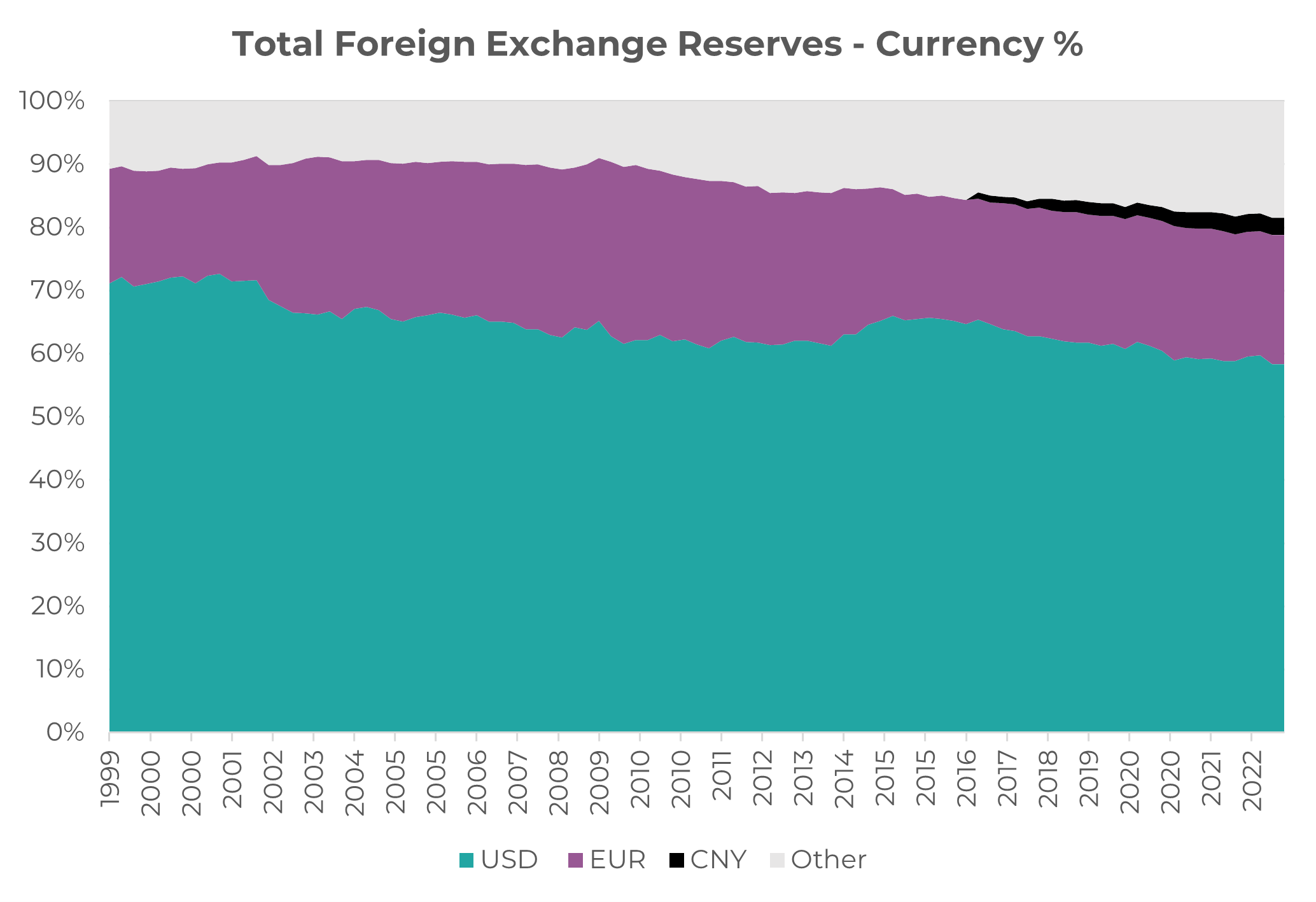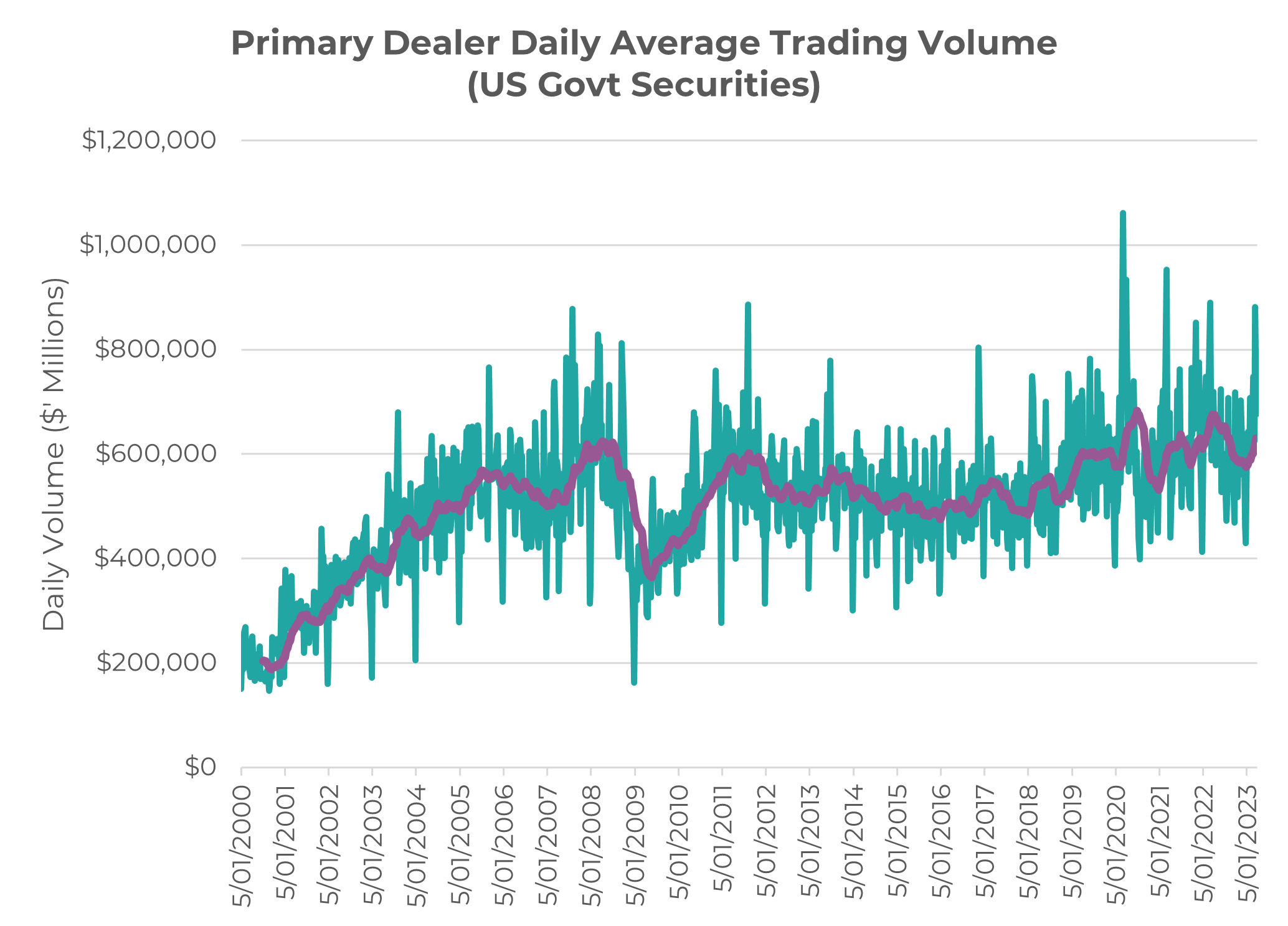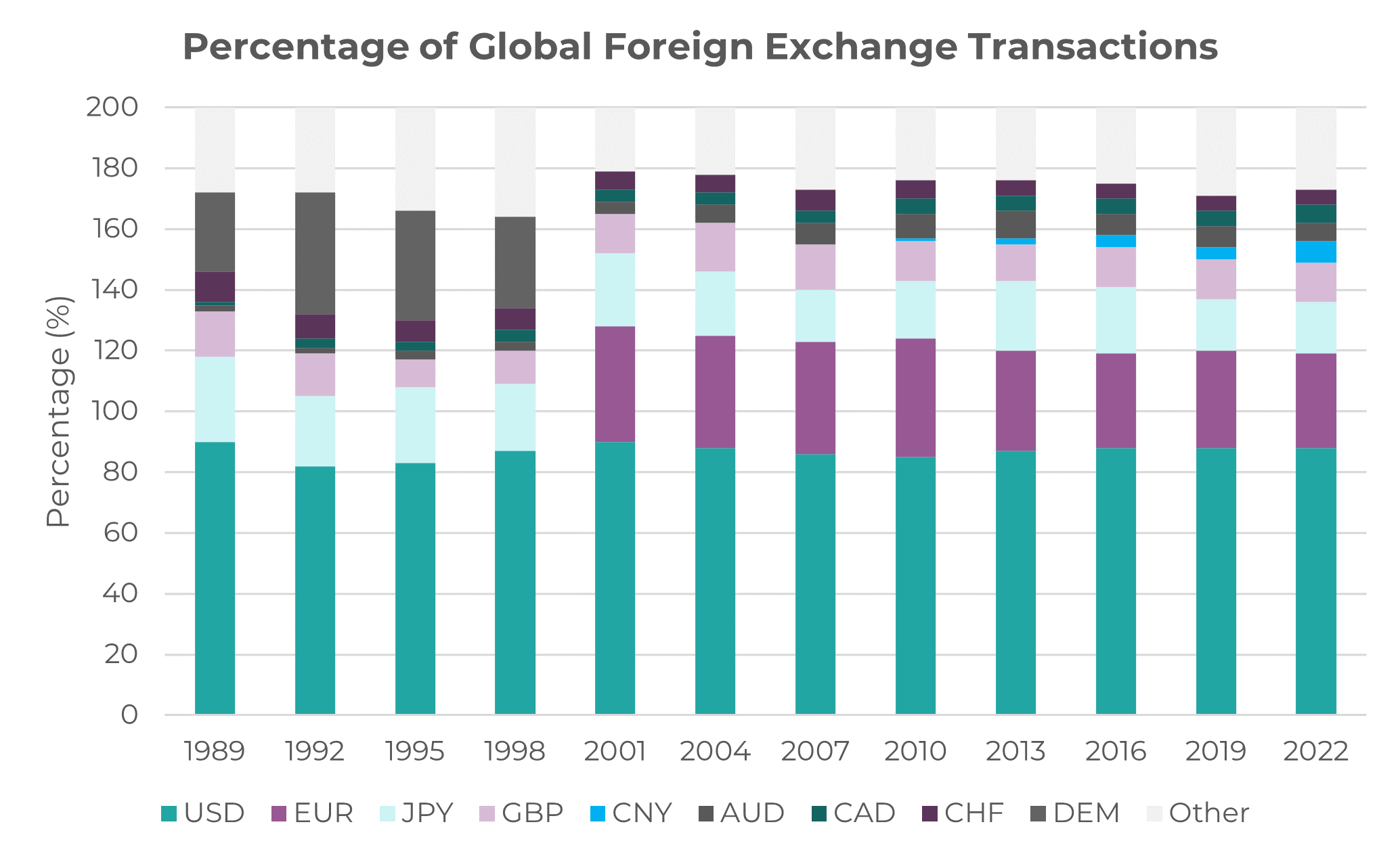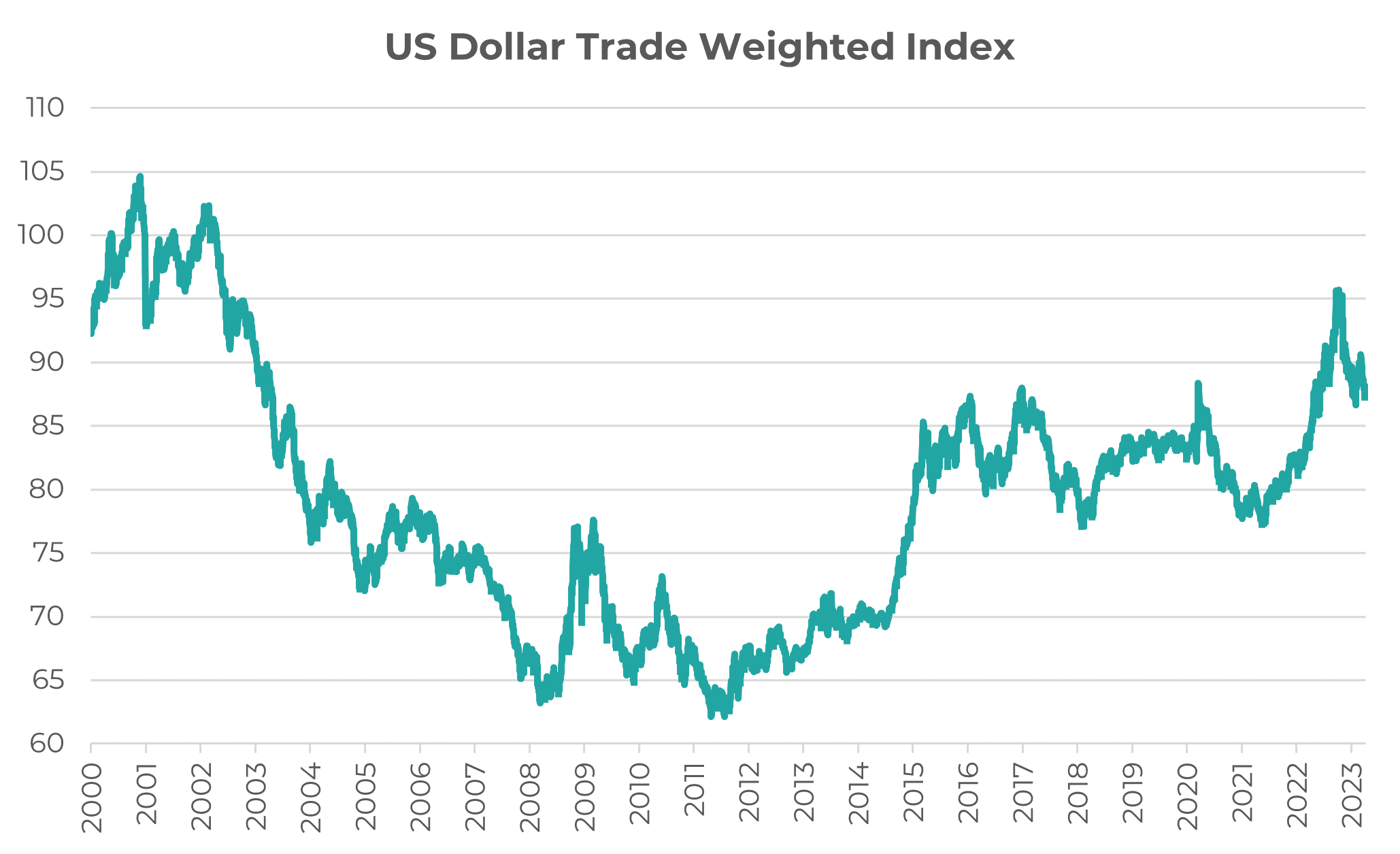The Dollar is Dead, Long Live the Dollar
It speaks volumes about the short attention span the market has lately, when waiting a week to discuss the topic of ‘the death of the US dollar’ ends up being yesterday’s news. Nevertheless, when Easter family gatherings feature multiple questions about “when we’ll all be buying coffee in Yuan”, there is at least some sliver of public psyche left focused on the topic.
The demise of the USD as the world’s reserve currency is not a new topic, if you had a dollar for every magazine cover proclaiming ‘the dollar is dead’ since the 1970s then you would probably have enough to subscribe to one of those magazines today.
Though not crucial to an Aussie investor’s perspective, even ones who operate in a multi-asset landscape, it is important to have a bearing on FX relationships and if truly there is a fundamental crisis occurring with the USD. Let’s cover some pieces of evidence that suggest that the US Dollar is saying, as the excellent scene from The Holy Grail goes, “I’m not dead!”.
US Dollar Share of Foreign Exchange Reserves
One aspect of the narrative has been a decline in USD as a proportion of global foreign exchange reserves – suggesting countries are losing faith in holding USD.

Source: Innova Asset Management, Bloomberg, Federal Reserve Board
Since 1980, the average % proportion of global FX reserves held in USD has been 61.1%, today that figure is 58.35% - hardly a global exodus, in fact this stable figure demonstrates the consistent global demand for the USD as a reserve over multiple decades and market cycles. Compare these figures to the Japanese Yen (sub 6%), British Pound (sub 5%) and the reserve currency of the future, the Chinse renminbi (sub 3%).
Of course, it’s undeniable that the level of reserve dominance has fallen from the 70% levels seen at the start of 2000, however digging into the underlying data shows a dispersion of minor currencies taking ‘market share’ away from the USD, rather than a wholesale switch to some other contender for King Dollar.
The Demand for US Treasuries
An element which creates structural demand for USD is the purchasing of US Treasuries, both by domestic investors and by foreign central banks, institutions, corporates etc.
This may be due to a sufficiently high yield premium over foreign interest rates (as is the case now with US Treasuries over other developed market government bonds), the perceived safety of US Government Debt or the liquidity offered by one of the deepest securities markets in the world.

Source: Innova Asset Management, Bloomberg
This is a noisy chart, but the three-month moving average (purple line) shows the sustained and rising level of trading volume in US government securities over the past two decades, which places support under the level of global demand for USD as a consequence.
US Dollar Share of Global Transactions
A staggering volume of global trade is transacted in USD every year – from national imports/exports, government investing, corporate trading and M&A activity, to your occasional overseas Amazon purchase, parties of all sizes are taking on exposure to the mighty dollar each minute of each passing day.
Given that a catalyst for the ‘death of the dollar’ story was the transacting of commodities in other currencies, this is a particularly relevant piece of information to dig into. The Bank for International Settlements (BIS) kindly provides historical data on the turnover of foreign exchange instruments:

Source: Innova Asset Management, BIS
Since each FX transaction has two currencies (“legs”), the total will always add to 200%. So, to see the US Dollar consistently making up 82 – 90% of all transactions means that USD is almost always one leg of any transaction being done, and that figure has remained robust and consistent for over three decades.
The flux of currencies on the other side is interesting to observe, the Yen and British Pound are fairly consistent, with the Chinese Yuan entering onto the global stage in earnest in 2010, rising from 1% to 7% in that time. But this rise has not cannibalised USD share, but rather taken away from other minor currencies in that time (USD share rose from 85% to 88% in that same time period).
Trade Weighted Index
A trade-weighted index measures the value of a currency on its strength relative to its major trading partners – one exists for the AUD, and one certainly exists for the USD. We’ll look at this as a final piece of evidence in this brief analysis as a more ‘honest’ representation of the value of the US Dollar, where if the dollar was losing its relevance as a trading currency you would expect to see a persistent collapse in this index over time.

Source: Innova Asset Management, Bloomberg
No such findings – although the drop in the index from 2000 to ~2011 was certainly brutal, this trend reversed in the subsequent 12 years, bringing the index back to nearly par. Mixed messages, but there’s no sign here of a slow grinding death march, if this type of noisy chart represents the decline of an entire currency then the bell tolls for just about any asset which trades with a random walk over time.
The King is Still in the Building
2023 has provided no shortage of negative narratives, some worth your attention, some worth an investigation and then to be put out of mind. The past thirty days alone has given plenty of material to assume that regional banks, commercial property and the US dollar would all soon be dead and buried.
We make a habit of scrutinizing such narratives, either for opportunities to invest or to protect ourselves and client capital from being caught up in sensationalised stories which may ultimately lead nowhere – at least within a reasonable time frame. It’s very plausible that the US hegemony collapses over time, but to position yourself for a collapse of the USD infrastructure within the next few years is to incur expensive hedging costs at best and court collapse at worst.
For now, the US Dollar, much like its former consumer Mark Twain, is saying that “reports of my death have been greatly exaggerated”. Or, for a more contemporary reference, “I didn’t hear no bell.”
4 topics

